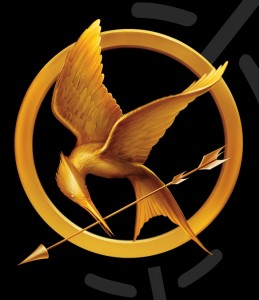—I saw this post on the old mises community and I have to say, I think the guy is dead wrong. I actually read the books and think I understand the narrative a little better than this guy:
“I just saw this movie. I’ll try to recall the obvious stuff, maybe a discussion can get going about what others noticed.
I’ve always been extra skeptical of tv/movie/music propaganda, and my wife is absolutely obsessed with hollywood and can predict any movie. Her secret is, “every detail counts” but I’m sure she’s just good with hollywood propaganda patterns. Anyways, I’ve thought a lot about propaganda in movies, and if the rest of my thinking in life is any indication then I’ve probably caught onto a lot of the right things. So this is what I noticed, and my take on that movie given my perspective:
The movie is pure war propaganda. From the hyperemotional yanking from family to be conscripted, to the proving yourself with violence in front of your judgemental peers, to the “group mentor” a la the military, to the obvious stuff like sportifying murder, impossible moral decisions, laughing about the killing your group has done, absolute disregard for morals because of some clearly avoidable crisis. It had blatant military and prison overtones, and yet never showed the rape that would likely have occurred from such disconnected and powerful supermales (the 10 guy, the black mentor, the white mentor, and the old god man). The murder-scapegoat was a posterboy military superhero stock character who killed shamelessly and laughed and got the girl while times were good, and stayed strong until the bitter end. And just like that he exits the movie and we’re supposed to not judge him because “all he knew how to do was kill” and at least he fought to the death for what he believes in.
Stock characters and the morals and themes: The girl is a sex toy/prize, but she has talent. The berserk 10 points military hero is white and automatically has a girl and friends and dominates everyone, and when he is exposed as a plain murderer its simply brushed off because he couldn’t help it. I live in a military town, and half the people in the theater were women/girls, so I noticed that they all giggled (if you rewatch the movie, you’ll notice the girl characters giggle often too) during scenes that normal people would hate. For example when the military superhero is running around slaughtering people with teeny boppers giggling presumably blowing him off between scenes of murder or some other psychologicalk trauma. Or when the boyfriend (?) back at home saw that she was falling in love with another guy. In fact, the whole idea of sexual promiscuity and widespread cheating and the idea of never talking about the rape that’s all around you is psychological preparation for a standard military life. More preparation was for PTSD, I forget the precise details of every scene, but of course there was something traumatic which involved the anatagonist making an impossible moral decision and panicking afterward. As I mentioned before, the panick for acknowledging evil was clear, and then immediately brushed aside as it cut to the sex prize hero girl sleeping peacefully.
There’s so much more. I saw the latest showing and it’s extra late now. I wonder how this will seem to me in the morning.”
— The Hunger Games takes place in a fictional dystopia. Nobody respects the Capitol and the only time the protagonists try to impress them is when their lives depend upon it. Rather, I think the existance and popularity of this series reflects a realization by people in the Western wolrd that we are the Capitol and that we are on top of the world for reasons that may not be too pretty to look at. A major theme in the Hunger Games is the depiction of the Capitol as a “Bread and Circuses” society. In fact the country Panem is named for the Latin for bread. The fact that people giggled every time someone was slaughtered only reinforces what the book is capturing; that we live in the Capitol; that too many things are controlled by a nefarious government; that the wealth and success of that government exist largely through theft and hegemony; and so much more. It really reflects that people understand that the way we live off of others is wrong, but we don’t know how to change it. So pop culture reflects societies feelings. Sometimes popcult is full of propaganda, but this, I think, is much more a reflection of our understanding that things are just fucked up.
Also, when they do rebel, they side with another government which is quickly shown to be just as bad as the Capitol. You'd think war propaganda would portray at least one government as good.
I think these will be more than your common serial novels turned movies. They will be, as literature should, a reflection of what society is experiencing. Right now we're expeirencing the fact that we done fucked up the world just like the Capitol did in The Hunger Games.

No comments:
Post a Comment